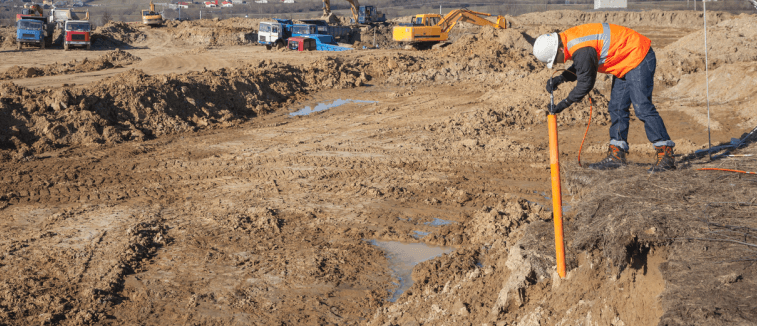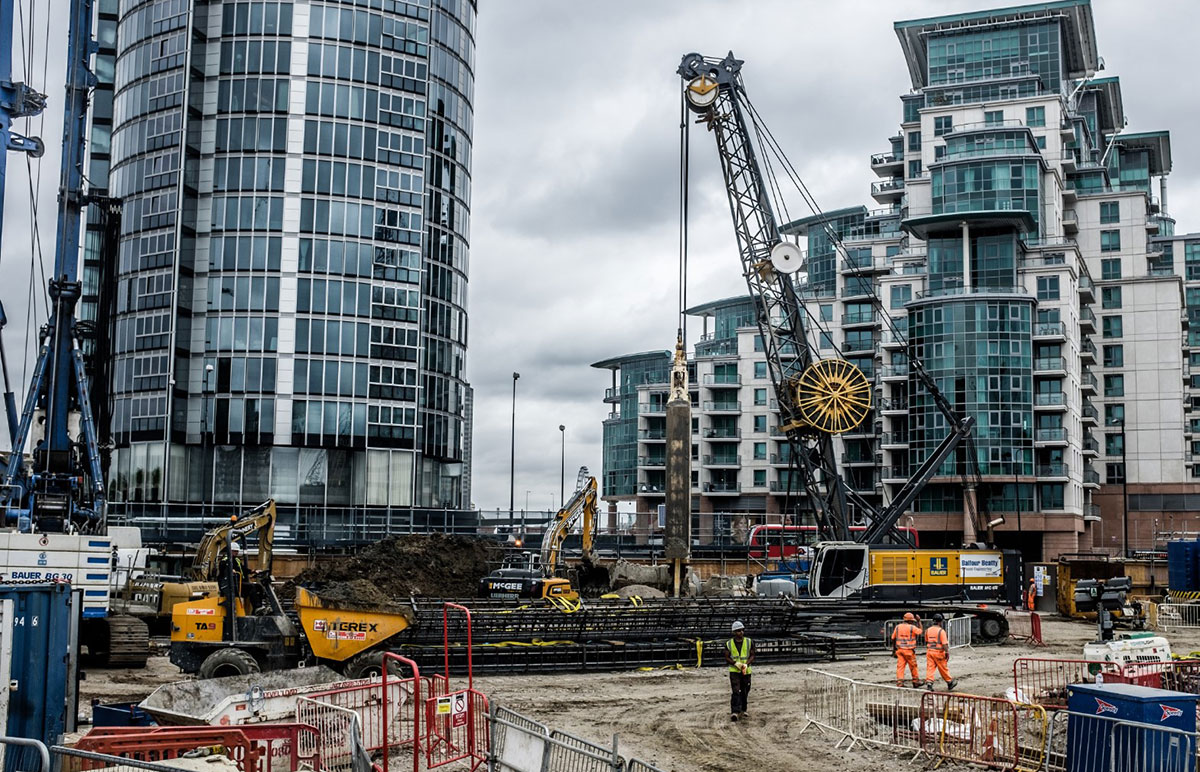How Geotheta can Save You Time, Stress, and Money.
How Geotheta can Save You Time, Stress, and Money.
Blog Article
The Ultimate Guide To Geotheta
Table of ContentsThe Definitive Guide for GeothetaThe Greatest Guide To GeothetaSome Ideas on Geotheta You Need To KnowThe Geotheta PDFsLittle Known Facts About Geotheta.

They carry out website investigations, gather samples, do laboratory examinations, and assess data to assess the viability of the ground for building jobs - Consulting Engineer. Based on their searchings for, geotechnical designers give referrals for structure style, slope security, retaining structures, and mitigation of geotechnical hazards. They collaborate with other experts, such as engineers, architectural designers, and construction teams, to make certain that geotechnical considerations are integrated right into the general job design and execution
By evaluating the actions and residential properties of dirt and rock, they can recognize prospective geotechnical dangers such as landslides, dirt negotiation, or incline instability. Their experience aids protect against failings or crashes that can threaten lives and residential property. Right here are some detailed tasks and responsibilities of a geotechnical engineer: Website Examination: Geotechnical engineers conduct website investigations to gather data on subsurface conditions.
They analyze the data to recognize the residential properties and habits of the dirt and rock, including their toughness, leaks in the structure, compaction qualities, and groundwater problems. Geotechnical Analysis and Layout: Geotechnical engineers analyze the data collected throughout site investigations to analyze the security and suitability of the site for building and construction jobs. They do geotechnical estimations and modeling to examine elements such as birthing capability, negotiation, incline security, side earth stress, and groundwater flow.
The Of Geotheta
Foundation Layout: Geotechnical engineers play a critical role in developing foundations that can securely sustain the desired structure. They assess the dirt conditions and load requirements to determine the proper structure kind, such as superficial structures (e.g., grounds), deep structures (e.g (https://justpaste.it/ec966)., heaps), or specialized techniques like soil improvement. They take into consideration aspects such as negotiation limitations, bearing capacity, and soil-structure communication to develop optimum foundation layouts
They assess building plans, display website tasks, and carry out field examinations to confirm that the layout referrals are adhered to. If unforeseen geotechnical concerns arise, they analyze the scenario and offer recommendations for removal or changes to the layout. Risk Assessment and Mitigation: Geotechnical engineers evaluate geotechnical risks and dangers connected with the task website, such as landslides, liquefaction, or soil erosion.

Partnership and Communication: Geotechnical engineers work closely with various other specialists involved in a task, such as engineers, architectural engineers, and building teams. Effective communication and cooperation are necessary to integrate geotechnical factors to consider into the overall project layout and building process. Geotechnical designers supply technical competence, solution questions, and ensure that geotechnical requirements are satisfied.
3 Easy Facts About Geotheta Explained
Below are some kinds of geotechnical designers: Structure Engineer: Structure designers specialize in making and assessing foundations for frameworks. They analyze the soil problems, load requirements, and site characteristics to determine one of the most proper foundation type and design, such as shallow structures, deep structures, or specialized strategies like heap structures.
They evaluate the factors affecting slope stability, such as dirt residential properties, groundwater problems, and slope geometry, and create strategies to stop incline failings and minimize dangers. Earthquake Engineer: Quake designers specialize in evaluating and making structures to withstand seismic forces. They evaluate the seismic threat of a website, evaluate soil liquefaction possibility, and establish seismic design standards to make sure the security and resilience of frameworks during quakes.
They execute area screening, accumulate samples, and analyze the gathered information to define the soil residential or commercial properties, geologic formations, and groundwater conditions at a site. Geotechnical Instrumentation Engineer: Geotechnical instrumentation engineers concentrate on tracking and determining the behavior of soil, rock, and frameworks. They set up and keep instrumentation systems that keep an eye on variables such as dirt settlement, groundwater degrees, slope activities, and architectural variations to evaluate performance and supply very early cautions of possible concerns.
What Does Geotheta Mean?
They perform examinations such as triaxial tests, consolidation examinations, straight shear tests, and permeability examinations to collect data for geotechnical evaluation and design. Geosynthetics Designer: Geosynthetics engineers specialize in the layout and application of geosynthetic materials, such as geotextiles, geogrids, and geomembranes. They utilize these products to boost soil security, strengthen slopes, provide water drainage remedies, and control disintegration.
They often tend to be investigative people, which implies they're intellectual, reflective, and curious. They wonder, methodical, logical, logical, and sensible. Several of them are likewise social, implying they're kind, charitable, cooperative, patient, caring, valuable, understanding, tactful, and pleasant. Does this seem like you? Take our cost-free profession test to locate out if geotechnical designer is just one of your top why not find out more profession matches.
In the workplace atmosphere, geotechnical engineers utilize specialized software application devices to carry out estimations, create styles, and evaluate information. They prepare reports, testimonial job requirements, interact with customers and staff member, and coordinate task activities. The workplace setting offers a conducive atmosphere for study, evaluation, and cooperation with other specialists associated with the project.
The Best Strategy To Use For Geotheta
They regularly go to project websites to perform website examinations, analyze geotechnical conditions, and gather information for evaluation. These gos to involve traveling to different locations, often in remote or challenging surfaces. Geotechnical designers may do dirt tasting, conduct examinations, and display building activities to make certain that the geotechnical aspects of the task are being carried out correctly.
Geotechnical designers also work in specialized geotechnical labs. Geotechnical research laboratory engineers function thoroughly in these atmospheres, dealing with testing tools, operating tools, and taping information.
Report this page